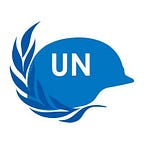#ACTtoProtect children affected by armed conflict
By Bintou Keita
Children living in conflict zones often face direct threats to their security including deliberate attacks on residential areas, schools and hospitals. In some settings, children are subject to abductions or risk being recruited as military combatants and suicide bombers. Nearly everywhere there is conflict, children run the risk of being exploited, subject to sexual violence or killed. They are also frequently denied access to much-needed humanitarian assistance. Within these settings, the rights and security of children are too often overlooked as the social fabric around them gets ripped apart, leaving them vulnerable and in need of urgent assistance. These dire scenarios are known as the six grave violations perpetrated against children in armed conflict.
During my time with the United Nations in Burundi and in Darfur, I witnessed these violations. Sadly, reports of attacks carried out on schools, hospitals and the recruitment of children as soldiers and suicide bombers in places like Afghanistan, Darfur, Iraq, Myanmar, the Philippines and Somalia, Syria, Yemen and Colombia –to name a few places– occur all too frequently.
The United Nations is committed to ending these violations. In December 1996, the General Assembly adopted its first resolution 51/77 (1996) on protection of children affected by armed conflict. With the adoption of resolution 1261 (1999), the Security Council placed child protection issues firmly on its agenda and initiated annual reporting by the Secretary-General. Since 2000, the UN has deployed Child Protection Advisers to Peacekeeping Operations and Special Political Missions.
Child protection has been integrated into five peacekeeping missions: Mali (MINUSMA), DR Congo (MONUSCO), Central African Republic (MINUSCA), Darfur (UNAMID), and South Sudan (UNMISS) and into three Special Political missions: Afghanistan (UNAMA), Iraq (UNAMI), and Somalia (UNSOM). Last year alone, Child Protection Advisers facilitated the release of approximately 4,000 children from armed forces and groups across four peacekeeping contexts and trained over 14,000 peacekeeping personnel to implement child protection mandates.
Deploying dedicated Child Protection Advisers in Peacekeeping Operations and Special Political Missions supports national stakeholders to strengthen child protection capacities in the hope of preventing future violence against children. They work with national stakeholders and civil society, the UN military, police, and civilian mission components, (e.g. disarmament, demobilization and reintegration, civil affairs, judicial affairs, political affairs, gender affairs, protection of civilians, and human rights officers) by strengthening child protection capacities to prevent future violence.
In Sudan and in the Democratic Republic of the Congo, Child Protection Adviser-led dialogue and monitoring revealed that offending practices by these national armed forces had ended. This resulted in the delisting of Congolese and Sudanese armed forces from the Secretary General’s so-called “List of Shame,” or annex to his annual report on Children and Armed Conflict, which lists perpetrators of the six grave child rights violations. Such Child Protection Adviser engagement in dialogue with parties to the conflict may not only improve national armed forces’ visibility and potential for international support, but also provides incentive for non-state armed groups to engage in dialogue with Child Protection Advisers in order to get delisted from the Children and Armed Conflict annual report, and thereby, to open up new possibilities, such as participating in national political processes or integrating the national army.
Within our missions, the military reports grave child rights violations to Child Protection Advisers, identifies the military occupation and use of schools, and provides physical protection to children, for example through strategic patrolling presence or by interposition. Police officers work in tandem with the national police to ensure the rights of children are protected. Judicial Affairs officers make sure that children’s rights are guaranteed and upheld at the national level. Throughout the process, our missions work with colleagues at UNICEF to ensure that children’s needs are met, in particular for their reintegration into society once they have been handed over by armed forces and groups.
In support of this agenda, the African Union, one of UN Peacekeeping’s key regional partners, adopted a roadmap known as the Silencing the Guns Initiative that stresses a culture of peace and tolerance, which must be cultivated and nurtured in our children and youth through peace education in order to achieve sustainable conflict prevention and resolution. The Security Council, through resolution 2457, has unanimously backed the initiative and recognized the need to also combat poverty, deprivation and inequality to prevent and protect children from all violations and abuses.
Providing protection under the children affected by armed conflict mandate is not only a legal responsibility but a moral obligation. UN peacekeepers in Peace Operations will continue to work with various stakeholders — from regional actors, to national and local communities and will continuously #ACTtoProtect, through mobilization and the strengthening of partnerships to prevent grave violations committed against children in armed conflict. We must remember that our protection mandate lies under the broader umbrella of the 1959 General Assembly’s Declaration of the Rights of the Child, defining children’s rights to protection, education, health care, shelter and good nutrition and the more recent Convention on the Rights of Children (1989). As the Assistant Secretary-General for Africa, ensuring those rights are respected is key to my mandate too. To build sustainable peace in the continent for the years to come we must begin by respecting the rights of its children today.
Finally, I would like to pay tribute to the work of the many colleagues in Child Protection who engage with perseverance and courage in creating a safer world for children affected by armed conflicts. I wish to recall the inspirational work of my colleague Kumar Anuraj Jha who passed away in Sudan on November 2017, whose career and outstanding work, devoted to the prevention of children violations, we must never forget.
The author is United Nations Assistant-Secretary General for Africa.
